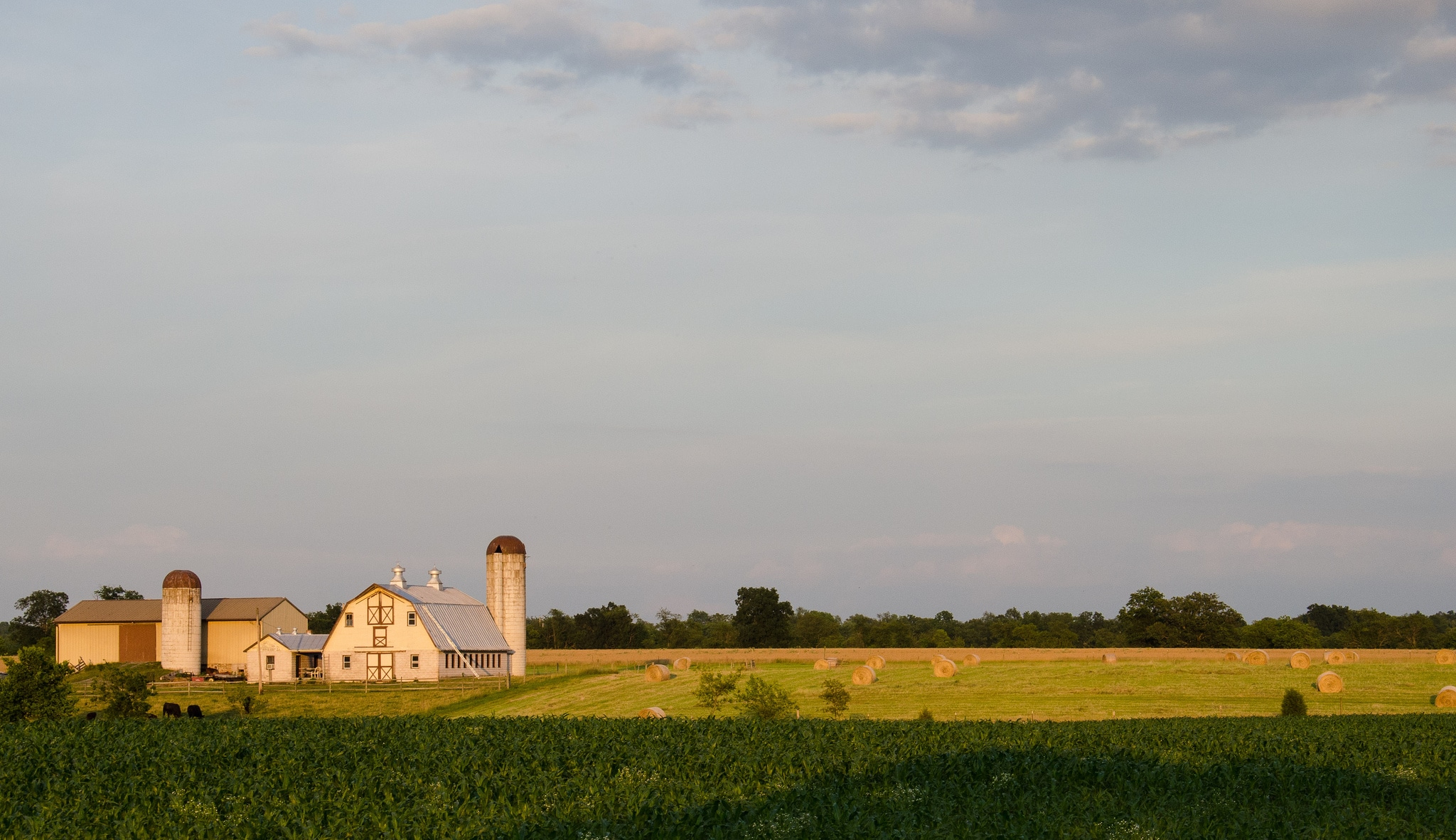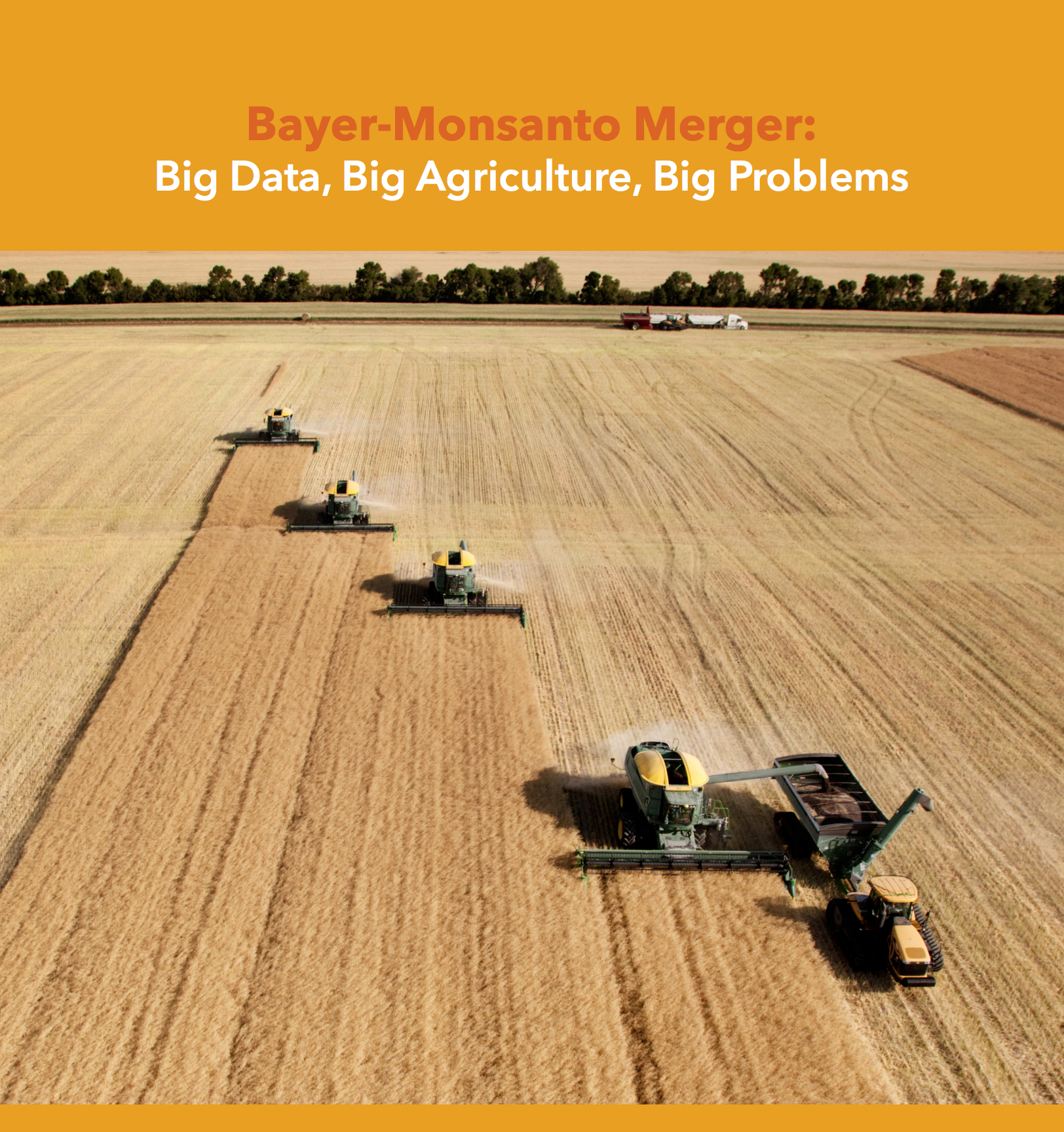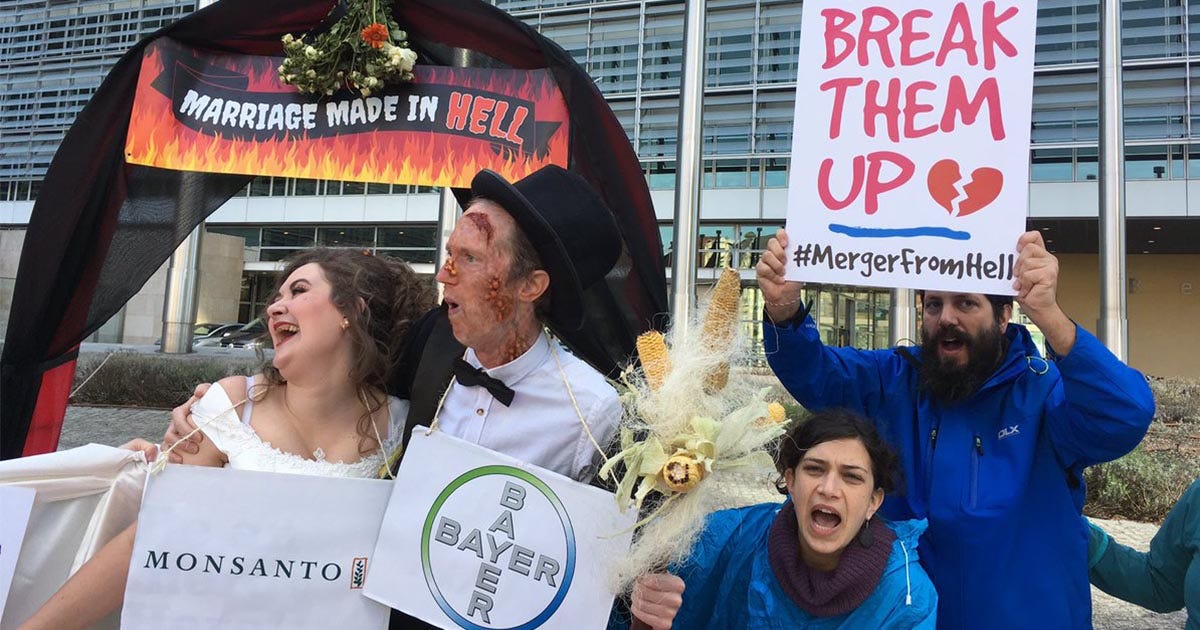- Blog
- Food & Agriculture
- End Corporate Influence
- Bayer, Monsanto and Big Data: Who will control our food system in the era of digital agriculture and mega-mergers?
Bayer, Monsanto and Big Data: Who will control our food system in the era of digital agriculture and mega-mergers?
by Jason Davidson, food & tech campaign associate

Donate Now!
Your contribution will benefit Friends of the Earth.
Stay Informed
Thanks for your interest in Friends of the Earth. You can find information about us and get in touch the following ways:
With the pending mega-merger between Bayer and Monsanto and the rise of digital and data-based farming, our agricultural system is on the brink of a paradigm shift. Based on a recent poll, 91.7 percent of farmers surveyed are concerned that Bayer-Monsanto will control data about farm practices. Why are these farmers concerned? Bayer and Monsanto can use proprietary data and intellectual property from seed and chemical patents and digital farming platforms to transform farmers from independent business operators to captured users.
Digital Agriculture involves the mass collection of data on a farm through the use of sensors, ranging from pieces attached to farm machinery to satellites. This data is fed through a platform to a service provider, like Monsanto, whose algorithms then use the data to either display conditions on the farm or make specific recommendations. Ultimately, the use of Big Data in farming is about creating detailed prescriptions for seed planting and chemical applications.
While there may theoretically be benefits to farmers from digital agriculture tools, the majority of current R&D is focused on uses for chemically intensive monocultures. A new white paper by the Konkurrenz group reveals that Bayer-Monsanto will use the rise in digital farming to gain significant power. If the merger goes through, only four companies would dominate the market (DowDuPont, Syngenta-ChemChina, BASF and Bayer-Monsanto). According to the white apper, competition between the Big Four will, “increase the farmers’ dependence on the Big Four’s digital platforms, where based on the data collected, farmers will rely more (rather than less) on the Big Four’s traits, seeds, and pesticides for their increasingly automated precision farming.”
The Konkurrenz group findings are consistent with a report released by Friends of the Earth, Open Markets Institute and SumOfUs in November, Bayer-Monsanto Merger: Big Data, Big Agriculture, Big Problems. Farmers have already faced a significant loss of bargaining power while purchasing farm inputs like seeds or pesticides. Recent mergers, acquisitions and anticompetitive practices in the digital farming space are just the most recent signs that this trend will continue.

Leading digital farming companies are ensuring they have access to more customers by collaborating with farm machinery companies. While Monsanto canceled the sale of Precision Planting to John Deere in 2017, the companies still have a lucrative data deal. The same press release that signaled the termination of the sale stated that Monsanto “has sold more than 10,000 Climate FieldView Drive devices that stream real-time data from planters, sprayers and combines, with more than 70 percent of FieldView Drive data streaming from John Deere planters and combines today.”
The Climate Corporation more recently announced it would establish complete connectivity between its data platform and New Holland Farm Machinery. Simultaneously, Syngenta has been heavily publicizing its membership in Ag Gateway, a consortium of groups that is trying to standardize the “language” of agriculture data to better facilitate sharing between devices and companies. Bundling data platforms with farm machinery companies that have a large market share is an effective way to rapidly expand the reach of such products.
In recent months, some of the major companies have implemented the first pieces of a fully integrated platform that include both chemicals and data services. For example, BASF’s Grow Smart Rewards Program provides cash back for farmers as long as they purchase BASF’s pesticides to go along with their data platform. The system creates a very basic (but powerful) incentive for farmers to use certain products in conjunction with the company’s data analytics.
Monsanto has been very public about its desire to increase the number of paid acres of Climate FieldView (Climate FieldView Plus) in the U.S. In 2017, Monsanto blew past its target of 25 million acres, saying it has reached 35 million instead.
Seed retailers are now required to sell many more versions of FieldView Plus to receive a rebate than they were in previous years. While the requirements for the rebate are not public knowledge, an article in CropLife identified a few of the issues with high rebate requirements, including some retailers who may start bundling the package into seed sales FOR FREE in order to get money back. This is fine by Monsanto because the company gets more customers while the seed retailer misses out.
However, pushing retailers to aggressively market FieldView Plus is only a piece of Monsanto’s strategy to obtain digital farming dominance. In August 2016, Monsanto announced its intent to build a “centralized and open data platform.” Monsanto wanted Climate FieldView to be the “App Store” of the industry. Independent digital farming companies could integrate their tools into the platform, where they would receive increased marketing ability while Monsanto took a financial cut and access to any of the data collected. Monsanto also said it would make money off the partnerships by selling some of that data under certain agreements. This is particularly concerning because it allows Monsanto to choose winners and losers amongst startups. It also ensures Monsanto makes money off of digital farming products without having to do any of the R&D.

After just 18 months, Climate FieldView has 19 partners on its platform. The Climate Corporation’s (Monsanto’s subsidiary that oversees its digital farming operations) CTO, Chris Young, has said that the platform helps get rid of redundancies in start-ups.
This move clearly shows Monsanto’s desire to consolidate the digital agriculture space. Innovation in digital agriculture is moving too fast for any one company to keep up. Instead, Monsanto has found a way to consolidate innovation and control the path of future R&D. If Monsanto can turn a profit by running the “App Store” of digital farming, it won’t need to significantly build out its own portfolio, the same way that Apple doesn’t need to build apps to make billions in profit. Additionally, Monsanto can bring together competitors onto the same platform where the company stands to profit no matter which competitor farmers prefer. However, Monsanto does not allow competitors of its own digital products onto the platform.
The pending Bayer-Monsanto merger would create the most complete portfolio of digital farming, seed and chemical products in the world. Coupled with Monsanto’s increasing control over the R&D pipeline for digital agriculture start-ups, the age of productive data competition in agriculture could evaporate rapidly.
Digital agriculture has the potential to be a piece of the industry with rich competition. This is exceptionally important in an industry that has seen waves of mass consolidation over the past few decades. But we are on the cusp of a digital arms race that may quickly see a handful of huge agrichemical conglomerates dominate digital farming tools the same way the companies dominate the physical ones like seeds and pesticides.
A merged Bayer-Monsanto would be extremely interested in controlling farmer information through a data-driven revolution to maximize profits. In a world where companies such as Facebook are criticized by Congress for misusing personal data through a platform, there is no room for centralization of data essential to our food supply. The Department of Justice needs to listen to farmers’ overwhelming concern that a merged company will control data about farm practices and use its dominance in one product to push sales of its other products. It is the responsibility of the Department of Justice to protect American farmers, listen to their concerns and stop this merger.
